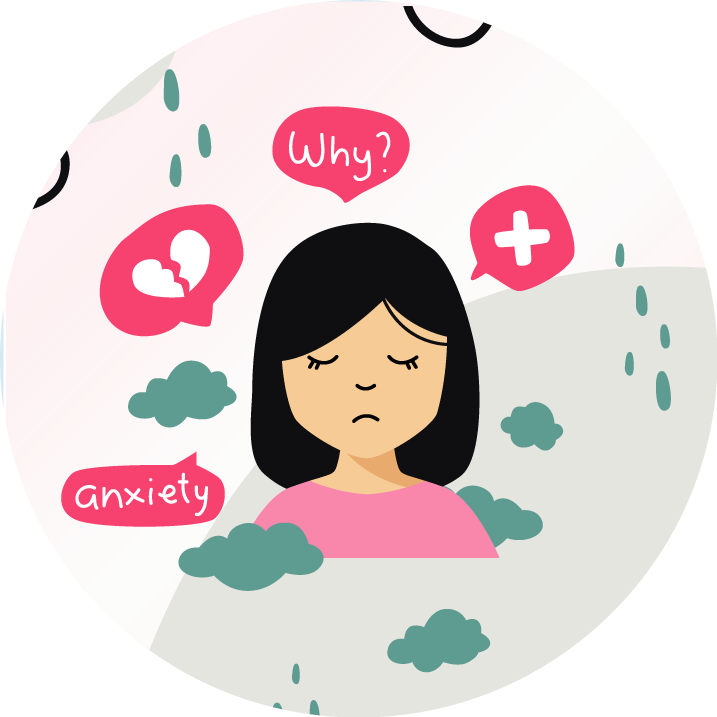How to Talk to Your Partner about their Mental Health

How to Talk to Your Partner about their Mental Health
July 26 2025 TalktoAngel 0 comments 237 Views
In a loving relationship, witnessing your partner struggle with mental health can be both painful and confusing. You may notice signs of stress, anxiety, depression, or mood swings and feel unsure about how to help. You might worry that bringing up the topic could hurt their feelings or damage your relationship. However, honest, compassionate conversations about mental health can be a crucial first step in getting your partner the support they need.
Regardless of age, gender, or origin, anybody can have mental health issues. Knowing how to talk to your partner about their mental health—with sensitivity and respect—can strengthen your emotional bond and promote healing. Here’s how to navigate this delicate but vital conversation.
1. Recognize the Signs
Before initiating a conversation, it’s important to recognize the signs that something might be wrong. Common indicators of mental health struggles include:
- Withdrawal from social or family activities
- Irritability or frequent mood changes
- Sleep disturbances
- Changes in appetite
- Loss of interest in things they once enjoyed
- Fatigue or low energy
- Expressions of hopelessness or helplessness
Understanding these signs helps you approach the conversation with clarity and compassion rather than assumption or blame.
2. Choose the Right Time and Place
Timing and setting can significantly impact how your partner receives your message. Avoid initiating the conversation during an argument or when your partner is overwhelmed. Instead, choose a quiet, private moment when you both have time to talk without distractions. Create a safe environment by showing that your intention is rooted in care, not criticism. A calm, supportive setting can help your partner feel less defensive and more open to discussion.
3. Lead with Compassion and Curiosity
Start by expressing your concern with empathy. Use “I” statements to share how you feel and what you’ve noticed, rather than “you” statements that may sound accusatory. For example:
- “I’ve noticed that you’ve been quiet and seem a bit down lately. I just want to check in and see how you’re feeling.”
- "I care about you, and I'm here for you. If something is going on, you don’t have to go through it alone.”
Be patient and open. Your partner might not be ready to open up right away, and that’s okay. Avoid pushing them to talk—just let them know you’re available when they’re ready.
4. Avoid Judgment or Problem-Solving Right Away
When someone opens up about their struggles, it’s natural to want to “fix” the issue. However, mental health conversations aren’t always about finding immediate solutions. Often, your partner simply needs to feel heard and validated.
Avoid statements like:
- “It’s all in your head.”
- “Just try to be positive.”
- “You should be grateful for what you have.”
These remarks, though well-intentioned, can feel dismissive. Instead, validate their feelings:
- “That sounds hard.”
- "I appreciate you entrusting me with your feelings."
- “I’m here for you, no matter what.”
5. Encourage Professional Help Gently
While your support matters, you’re not expected to be their therapist. If your partner’s struggles persist or worsen, gently suggest seeking professional help. You might say:
- “Talking to a therapist really helped me when I was going through something similar.”
- “There’s no shame in asking for help. It might feel good to talk to someone outside of our circle.”
- "If it's more comfortable for you, I can go with you or even help you find someone."
Online platforms like TalktoAngel make it easier to connect with qualified mental health professionals from the comfort of home. Services like this can reduce barriers to access and provide culturally competent care, especially when seeking the best therapists in India.
6. Set Boundaries and Take Care of Yourself
Supporting a partner with mental health issues can be emotionally taxing. While empathy is crucial, so is your mental well-being. Set healthy boundaries to ensure that you’re not absorbing their stress or neglecting your self-care.
Consider seeking support for yourself, whether through therapy or support groups, especially if your partner’s struggles begin to impact your relationship dynamics or emotional health.
7. Be Patient and Keep the Conversation Going
Mental health recovery is not a linear path, and neither are the conversations around it. Your partner might have good days and difficult ones. They may open up one day and shut down the next. This only indicates that mending takes time, not that you've failed. Keep showing up with empathy, consistency, and kindness. Even small gestures of support, like a thoughtful message, a walk together, or simply being present, can make a big difference.
8. Celebrate Progress and Acknowledge Efforts
Don’t forget to acknowledge the courage it takes for your partner to talk about their struggles and seek help. Celebrate small victories—whether it’s attending a therapy session, opening up about a difficult emotion, or taking a break when needed. Validation and encouragement reinforce trust and resilience, helping your partner feel supported on their journey.
Conclusion
Talking to your partner about their mental health isn’t always easy, but it’s one of the most loving and responsible things you can do. By approaching the topic with compassion, patience, and non-judgment, you offer your partner the gift of emotional safety and support.
Keep in mind that you are not alone on this journey. Whether it’s for you or your partner, professional guidance can make a world of difference. Platforms like TalktoAngel, which offer online counselling and access to some of the best therapists in India, are a great place to start. Asking for assistance is a step toward mutual healing, not a show of weakness.
Contributed By: Dr. (Prof.) R. K. Suri, Clinical Psychologist and Life Coach, &. Ms. Sangeeta Pal, Counselling Psychologist.
References
- American Psychological Association. (2023). Talking to a loved one about mental health. https://www.apa.org/topics/mental-health/talking
- Gottman, J., & Silver, N. (2015). The seven principles for making marriage work: A practical guide from the country’s foremost relationship expert. Harmony.
- World Health Organization. (2022). Mental health: Strengthening our response. https://www.who.int/news-room/fact-sheets/detail/mental-health-strengthening-our-response
- https://www.talktoangel.com/blog/mental-health-counselling
Leave a Comment:
Related Post
Categories
Related Quote

“Remember: the time you feel lonely is the time you most need to be by yourself. Life's cruelest irony.” - Douglas Coupland

“Anxiety is a thin stream of fear trickling through the mind. If encouraged, it cuts a channel into which all other thoughts are drained.” - Arthur Somers Roche

“You say you’re ‘depressed’ – all I see is resilience. You are allowed to feel messed up and inside out. It doesn’t mean you’re defective – it just means you’re human.” - David Mitchell, Cloud Atlas

"A positive attitude gives you power over your circumstances instead of your circumstances having power over you." - Joyce Meyer

“Stress is an ignorant state. It believes that everything is an emergency. Nothing is that important.” - Natalie Goldberg
Best Therapists In India































SHARE